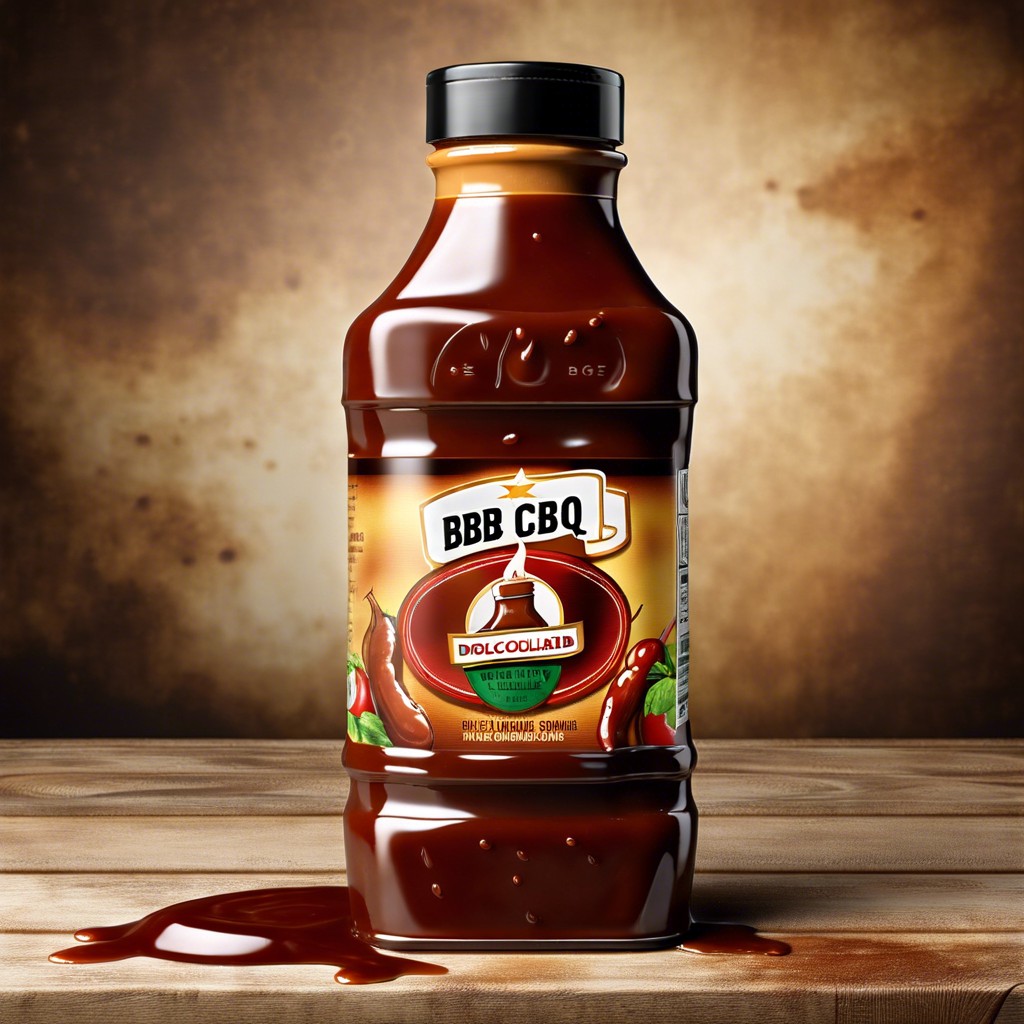BBQ sauce, like all food products, can spoil, and this article provides the necessary information to identify when it’s no longer good to use.
Key takeaways:
- Ingredients, preservatives, and storage conditions contribute to BBQ sauce degradation.
- Unopened BBQ sauce can last up to a year in a cool pantry.
- Once opened, refrigerate BBQ sauce and it can last 4-6 months.
- Signs of spoilage include color changes, consistency issues, odors, and mold growth.
- Proper storage includes using clean utensils, tightening the cap, and refrigerating or freezing as needed.
Why BBQ Sauce Goes Bad

BBQ sauce degradation typically results from three main factors: ingredients, preservatives, and storage conditions.
1. Ingredients: Sauces often contain perishable items like tomato paste, vinegar, and natural sweeteners, which can deteriorate over time.
2. Preservatives: Commercial sauces use preservatives to extend shelf life, yet these compounds eventually lose effectiveness, allowing microbes to proliferate.
3. Storage Conditions: Exposure to heat, light, and air accelerates spoilage. Inconsistent refrigeration or leaving sauce at room temperature after opening can lead to faster deterioration.
Understanding these elements can help you maintain the quality and safety of your BBQ sauce.
Shelf Life Tips
Understanding the shelf life of BBQ sauce involves recognizing the difference between unopened and opened bottles. An unopened bottle of BBQ sauce can generally last up to a year past its printed date if stored in a cool, dark pantry. Once opened, refrigeration is necessary, and the sauce can last between four to six months if kept at a consistent temperature.
To maximize freshness, ensure the cap is tightly sealed after each use to prevent the introduction of contaminants. Also, avoid using utensils that have been in contact with other food items, as this could introduce bacteria to the sauce that might accelerate spoilage. Lastly, when in doubt, always visually inspect the sauce for any changes in texture or unpleasant odors before use to ensure it’s still good to consume.
Obvious Signs That Your BBQ Sauce Is Expired
Visual changes signify that it’s time to discard your BBQ sauce. If the color has faded or darkened, this is often a reaction to prolonged exposure to light, air, or fluctuations in temperature, which can affect the sauce’s integrity.
Consistency is another giveaway. BBQ sauce that has become noticeably thicker, or conversely, has developed separated liquid layers, is indicating spoilage. Thickening happens as water content reduces or ingredients break down, while separation can be due to ingredient destabilization over time.
Odors are nature’s red flag. Any off-putting, sour, or generally “off” smell indicates bacterial growth, a clear sign that the sauce should not be consumed.
Lastly, mold growth spells the definitive end. Visible mold, regardless of color, needs no further investigation—discard the sauce immediately, as it poses a health risk.
The Best Ways To Store BBQ Sauce At Home
To prolong the quality of BBQ sauce, proper storage is essential. Unopened bottles should be kept in a cool, dry place away from sunlight, such as a pantry. Once opened, refrigeration is necessary to maintain freshness and prevent spoilage—aim to keep the bottle on an interior shelf, as the door can be subject to varying temperatures.
To minimize exposure to contaminants, always use a clean utensil when serving the sauce, which also helps to prevent introducing bacteria into the bottle. Ensure the cap is screwed on tightly after each use to limit oxygen exposure, which can accelerate deterioration.
When storing homemade BBQ sauce, use airtight containers and refrigerate immediately. For bulk prepared sauce, consider storing it in smaller portions to avoid repeatedly warming the entire batch. This method maintains the integrity of the sauce for longer periods.
If you freeze BBQ sauce, be aware that while it extends shelf life, it may slightly alter the texture or consistency once thawed. Opt for airtight, freezer-safe containers, leaving some headspace for expansion. Label containers with the date to help keep track of how long they’ve been stored.
Remember, the key to extending the life of your BBQ sauce is reducing exposure to the elements and maintaining a consistent, appropriate temperature.
Related
- How Long is BBQ Sauce Good for in the Fridge: Tips to Maximize Shelf Life
- Quick BBQ Sauce: How to Create Your Homemade Blend Easily
- How Long Does BBQ Last in the Fridge: Safe Storage Tips and Guidelines
- How Long is BBQ Good for in the Fridge – Safe Storage Tips
- Carolina BBQ Sauce: History, Variations, and Recipes